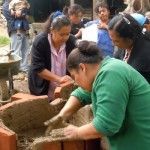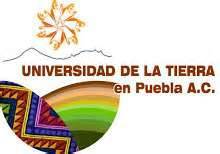Universidad de la Tierra: 'Geen lokaal, geen leraren en geen curriculum. En toch waardevol'
19 januari 2013
Mike Emiliani, student in de VS, dacht dat 'onderwijzen' en 'leren' synoniem waren. Hij ging op onderzoek in Mexico, op bezoek bij het innovatieve Unitierra, de universiteit van Puebla. 'Geen klaslokalen, geen leraren en geen curriculum. En toch heeft deze school de mensen geholpen aan praktische vaardigheden waar ze hun hele leven iets aan hebben.' Zijn verhaal. Een een video van deze bijzondere aanpak. As a university student in the United States, I’ve always thought of “education” and “learning” as synonyms. That’s an assumption that got turned upside down during the five weeks I spent this summer in Oaxaca, Mexico, investigating alternative education methods among indigenous people .
As a university student in the United States, I’ve always thought of “education” and “learning” as synonyms. That’s an assumption that got turned upside down during the five weeks I spent this summer in Oaxaca, Mexico, investigating alternative education methods among indigenous people .The educators I observed there called what they were doing “participant education.” While each group had a slightly different definition of the concept, certain things stayed consistent everywhere I went.
First, people have a greater control...
...over how they learn and what they learn compared to the formal model of classroom education.
Second, instruction was decentralized
The philosopher Ivan Illich, who was an avid promoter of redefining what education and learning can mean, called this kind of decentralization the “opportunity web.” The 4-part web stresses dialogue and skill-sharing between people of different classes, backgrounds, and cultures and people finding other people with like interests or useful knowledge to help facilitate their learning.
Third, it is transformative
To Paulo Freire, another prominent education theorist, learning should center on meaningful dialogue between people to question the existing world in order to re-invent meaning and purpose.

In order to help you envision this process, I am going to describe an example in which participant educators facilitated the building of a clay oven in a village outside Oaxaca. But before I do that, I’d like to put these projects in context by talking about what education has been expected to do In Mexican history.
A history of distrust
Modern education in Mexico begins with the Liberal Party’s victory over the Conservatives in the 1861 Reform War. Liberals elected Benito Juarez, a native Zapotec from the Sierra of Oaxaca, as the first freely elected president of Mexico. At the time, Mexico consisted of countless groups that spoke different languages, respected different forms of authority, and had different goals about the future of the nation.
The Juarez administration sought to design an education system that would unify these groups and teach them basic skills. Up until this time, education in Mexico was dismal in terms of quality and results, especially among poor and indigenous groups. Illiteracy was rampant.
Leest u hier het artikel van Mike Emiliani verder.
Mike Emiliani wrote this article for YES! Magazine, a national, nonprofit media organization that fuses powerful ideas with practical actions.


Reacties